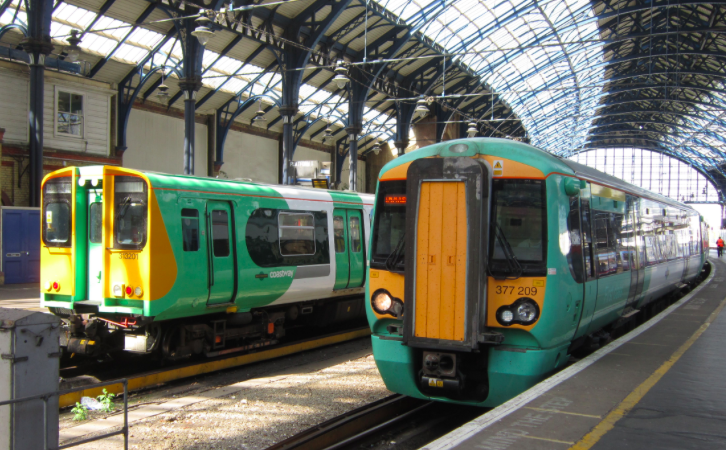The hike in rail fares will make life even harder for struggling households seeing the cost of goods and services rising, wages dropping and consumer debt growing.

Rail fares will increase by 3.6 per cent next year, the government announced today, adding yet more pressure to households suffering stagnating wages and incomes squeezed by inflation.
Millions of rail users will suffer the greatest fare increase in five years whilst prices of other goods and services continue to grow at 2.6 per cent per year with inflation, today’s ONS figures showed.
The hike in the cost of rail travel, which will come into effect in January 2018 and is pegged to July’s 3.6 per cent retail price index (RPI) increase, was slammed by rail unions.
The RMT general secretary, Mick Cash, said that the increase in fares were a direct result of privatisation, which was bad for passengers and staff:
“The private operators and government say the rises are necessary to fund investment but the reality is that they are pocketing the profits while passengers are paying more for less.”
“Rail engineering work [is] being delayed or cancelled, skilled railway jobs being lost and staff cut on trains, stations and at ticket offices.”
The Aslef general secretary, Mick Whelan, urged the government to intervene:
“The government must intervene to make fares simpler, fairer and cheaper in Brexit Britain. Passengers and taxpayers will rightly be asking what they are paying for.”
The rail fare increases will add to an already difficult situation for many households left struggling to make ends meet, as prices for goods and services grow and wages stagnate and even drop.
Disposable income, a key measure of living standards, dropped by 2 per cent in the first quarter of 2017 alone, its fastest decrease in six years.
Add to this the fact that inflation is rising at 2.6 per cent per year and wages for public sector and private sector workers declining, and households appear to be in an extremely precarious position.

TUC General Secretary, Frances O’Grady, said that the hike in rail fares would on exacerbate an already difficult situation for struggling households.
“Britain’s cost of living crisis is not easing up. The squeeze on cash-strapped families continues to grip.
“Rising prices are hammering pay packets. And today’s announcement on rail fare hikes will only add to the pressure households are under. The government needs to wake up and get wages rising across the public and private sector. The clock is ticking.”
The hike in rail fares comes amidst a host of worrying economic signs: declining wages, dwindling disposable income and historic growth in debt and payday loans. Our economy has never looked so unsustainable.
To reach hundreds of thousands of new readers and to make the biggest impact we can in the next general election, we need to grow our donor base substantially.
That's why in 2024, we are seeking to generate 150 additional regular donors to support Left Foot Forward's work.
We still need another 124 people to donate to hit the target. You can help. Donate today.



